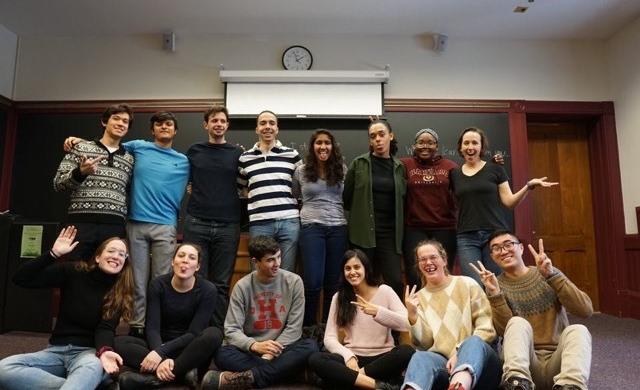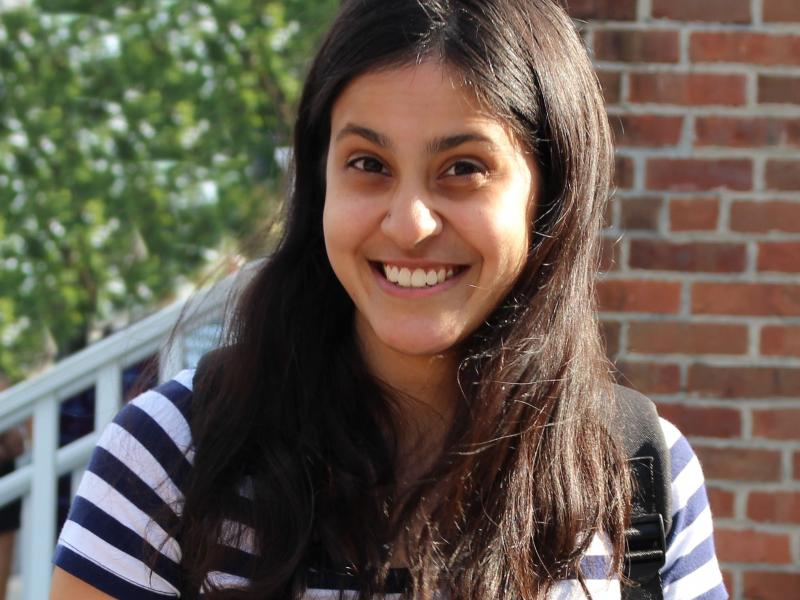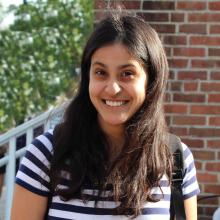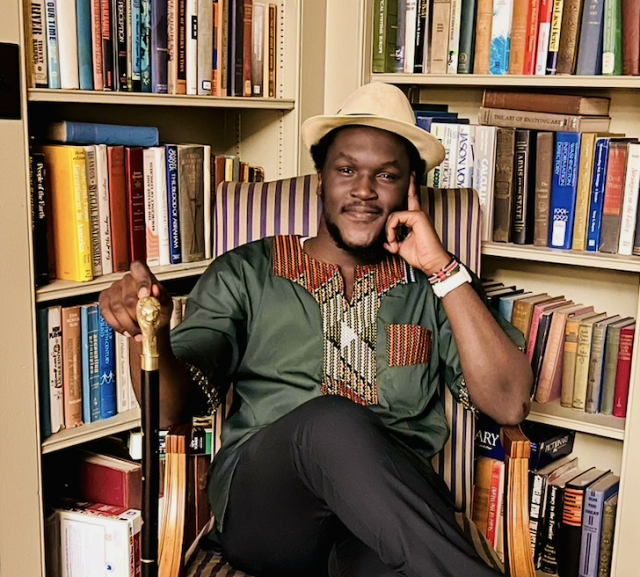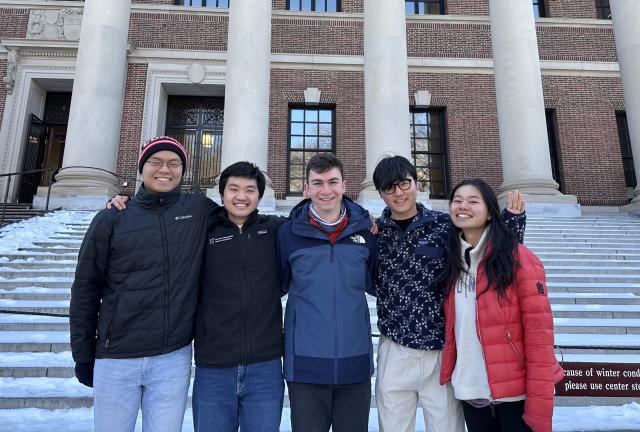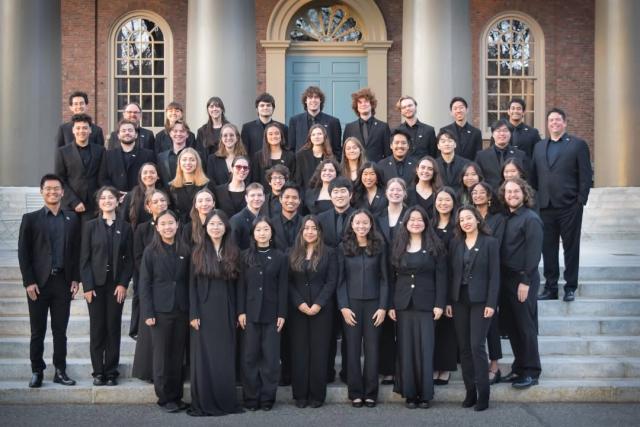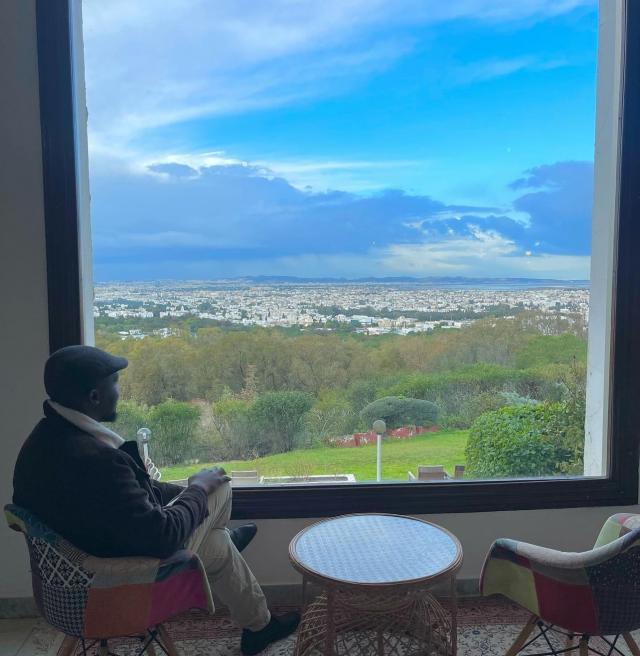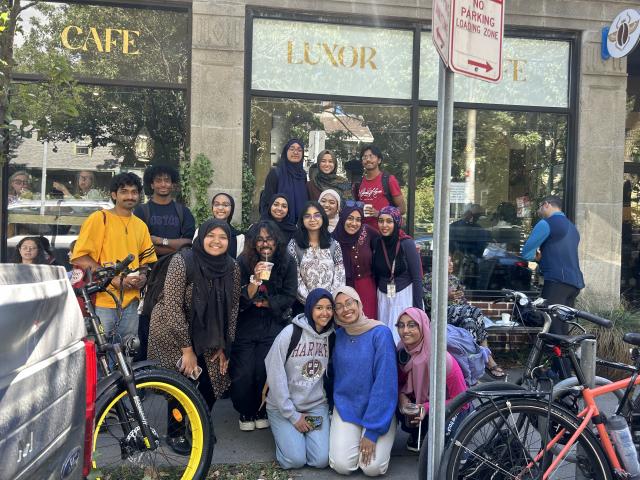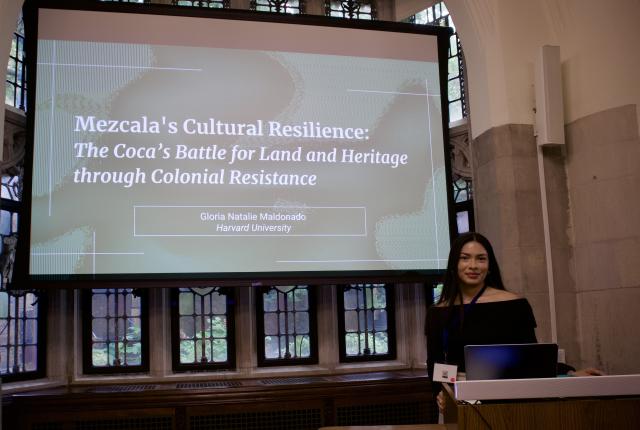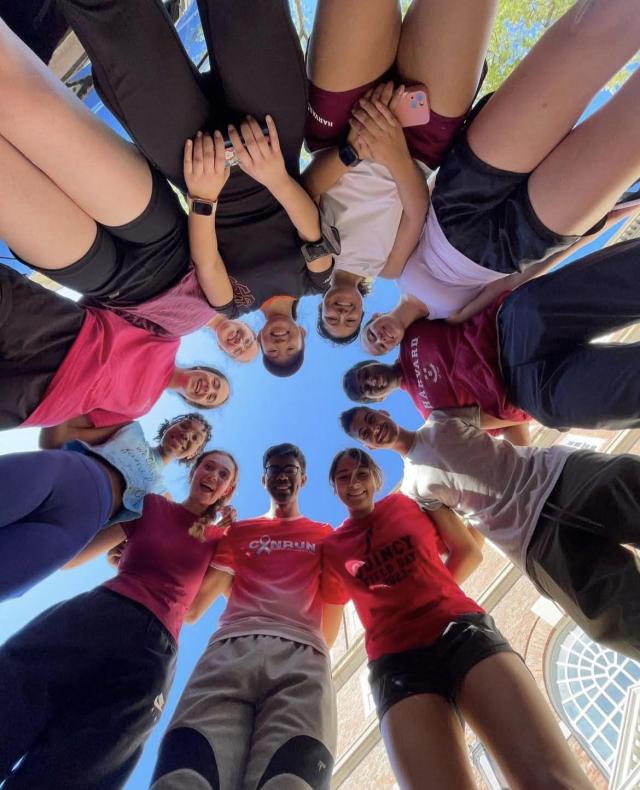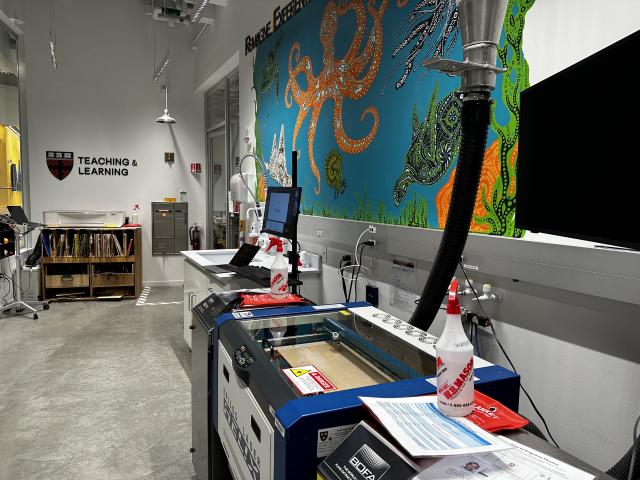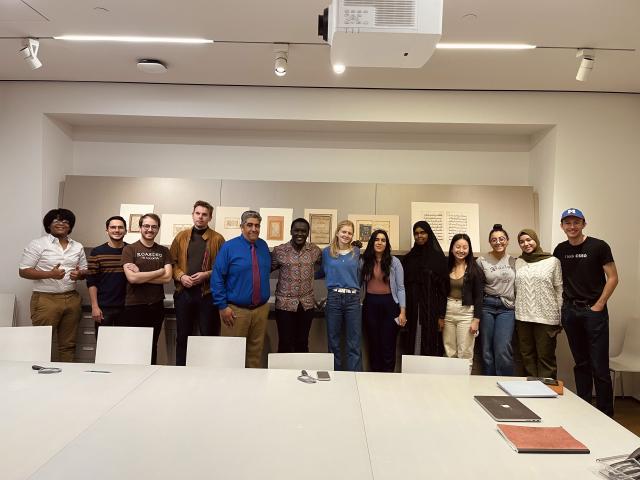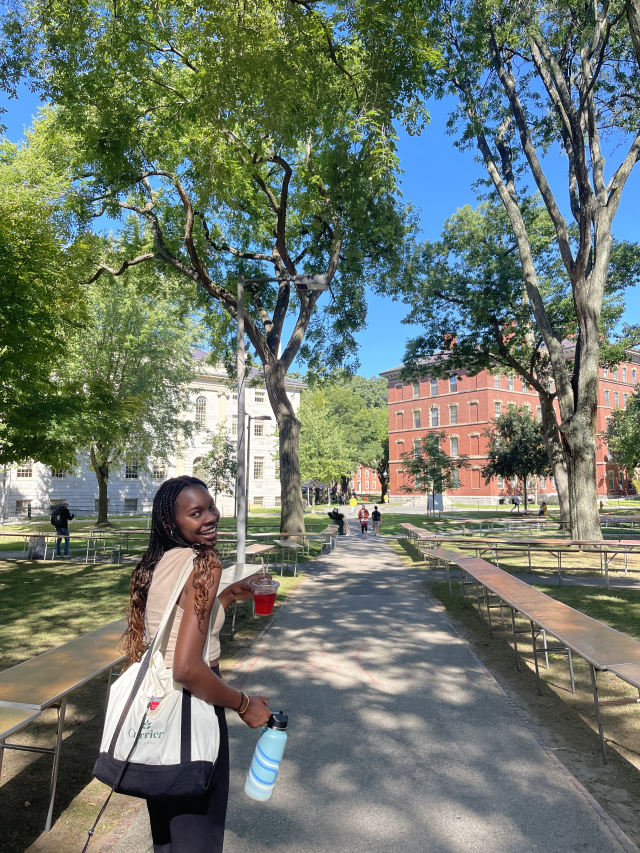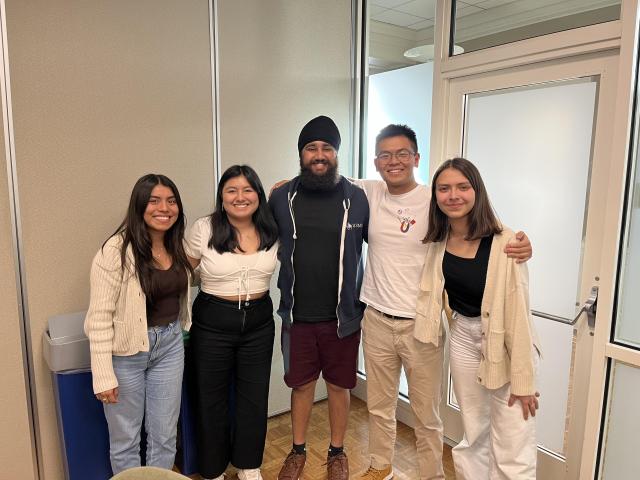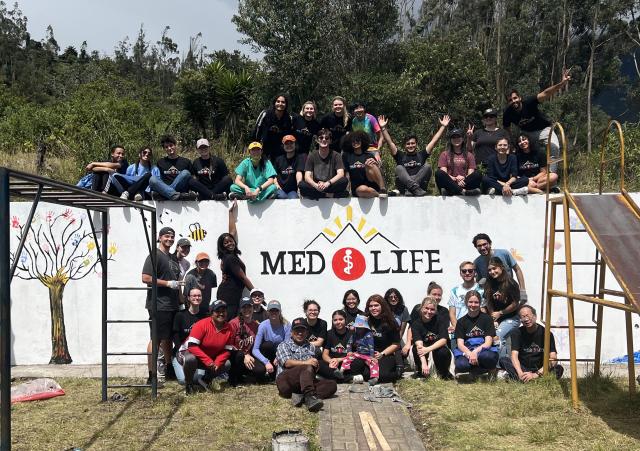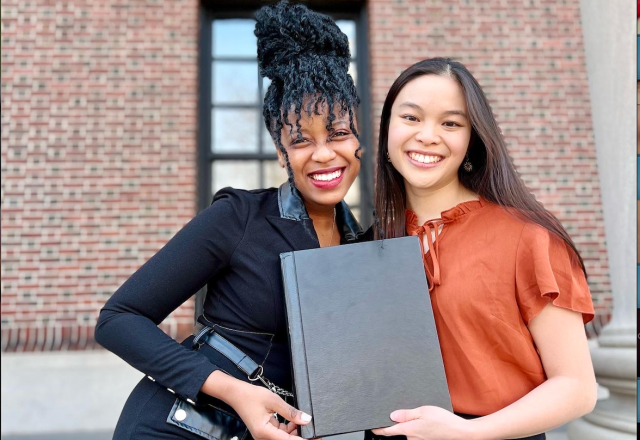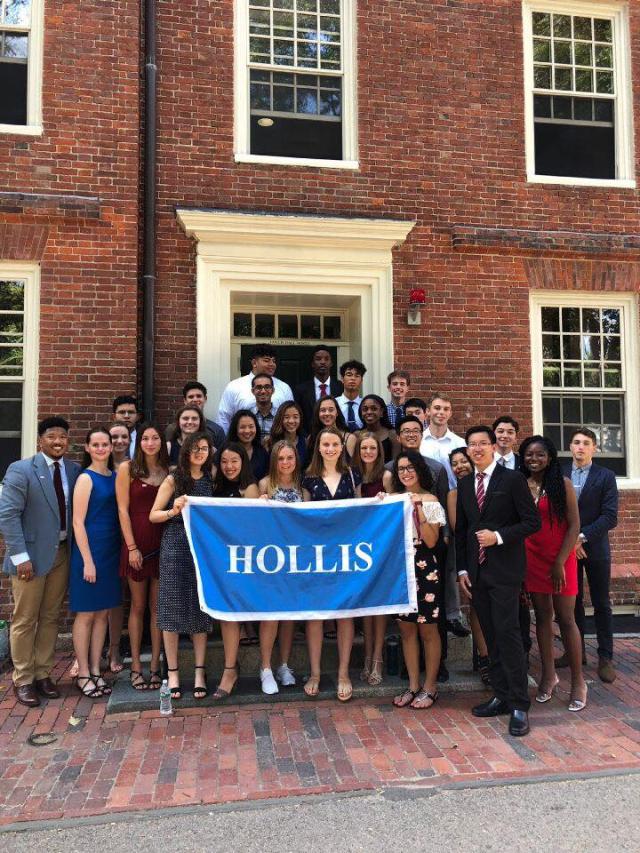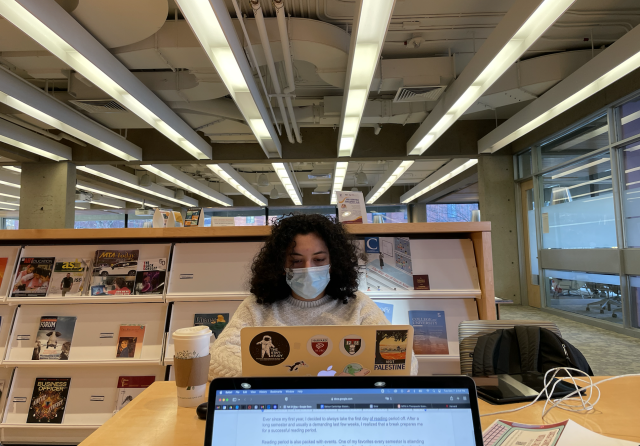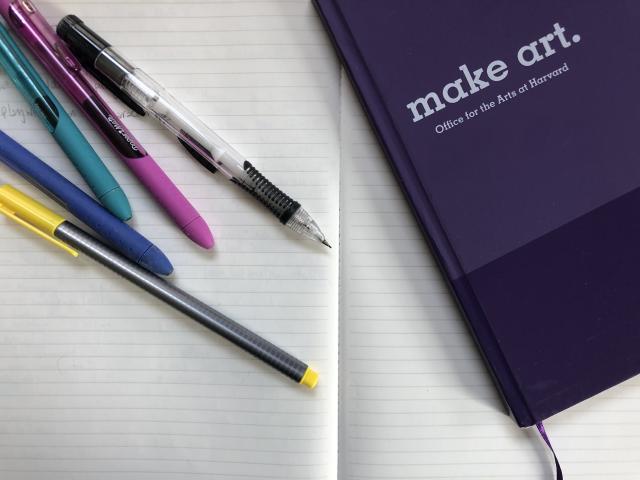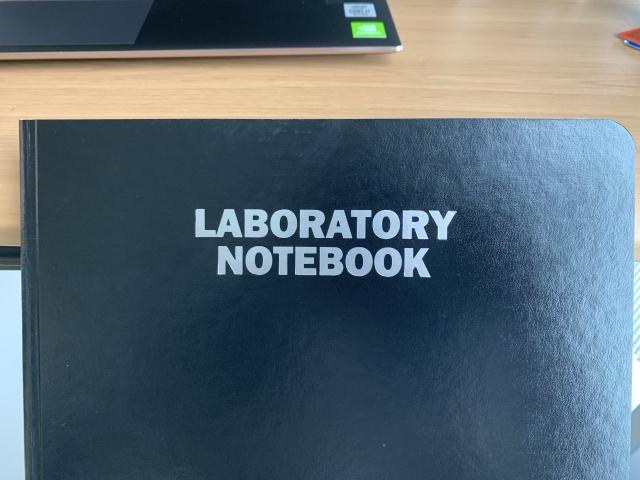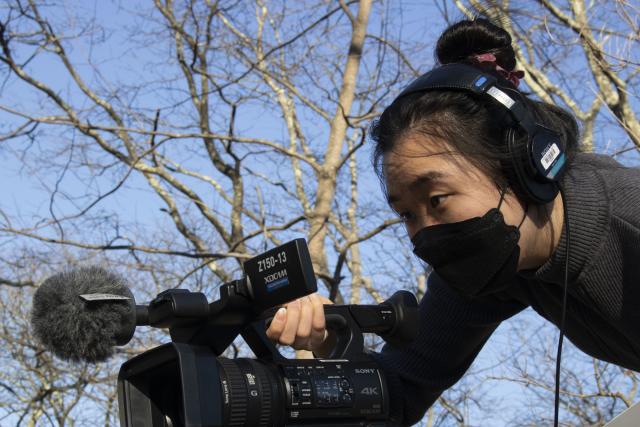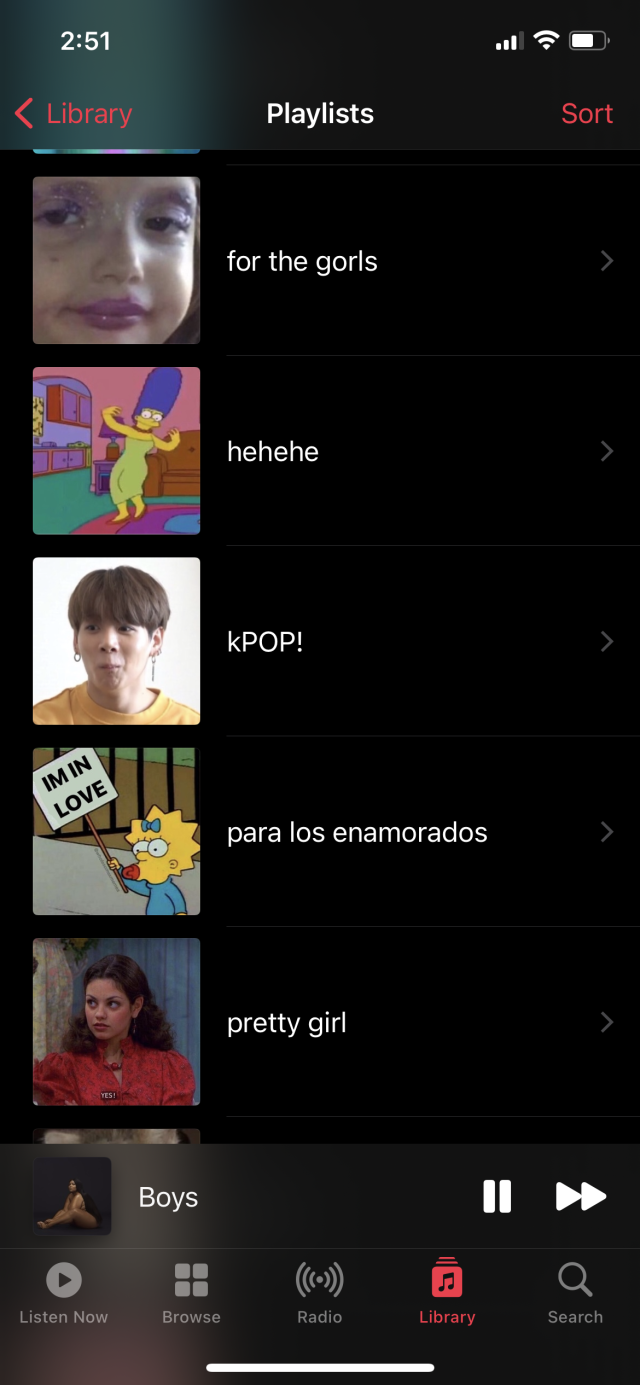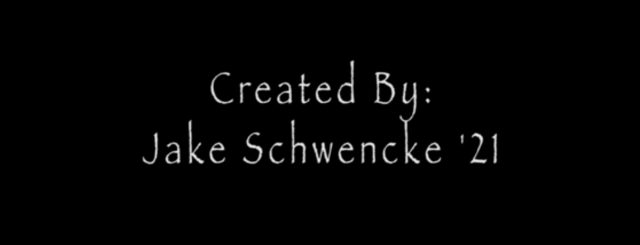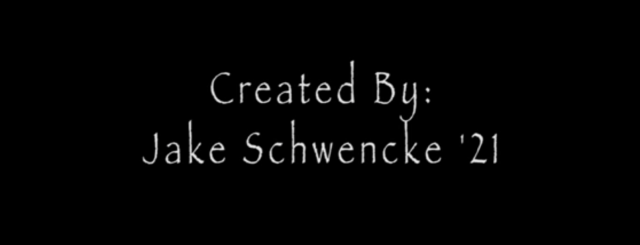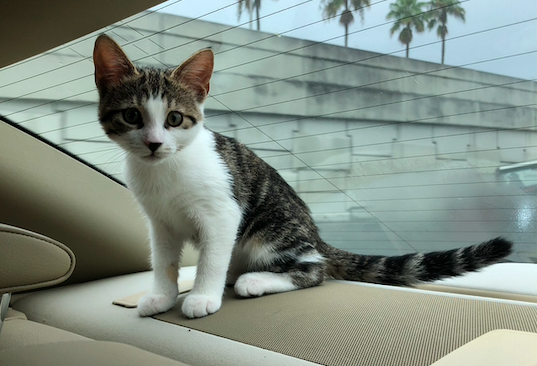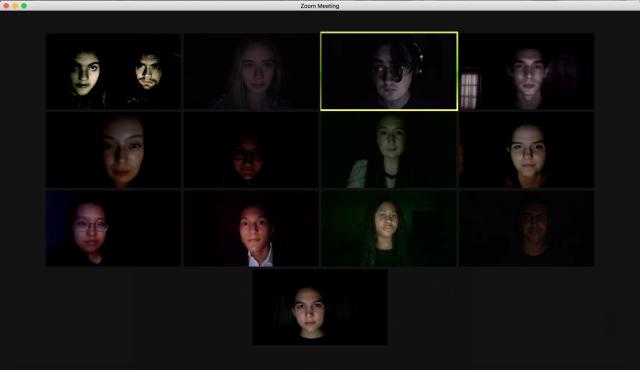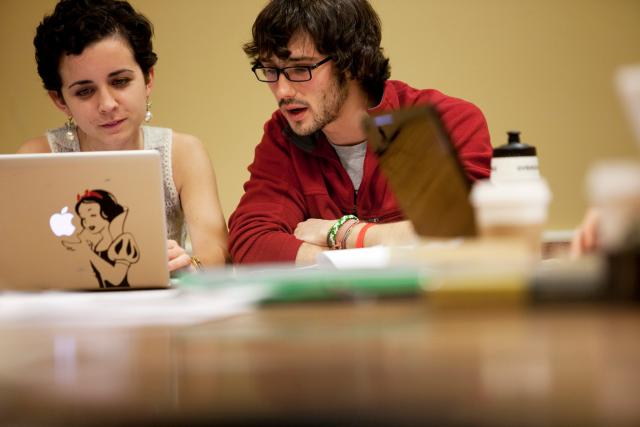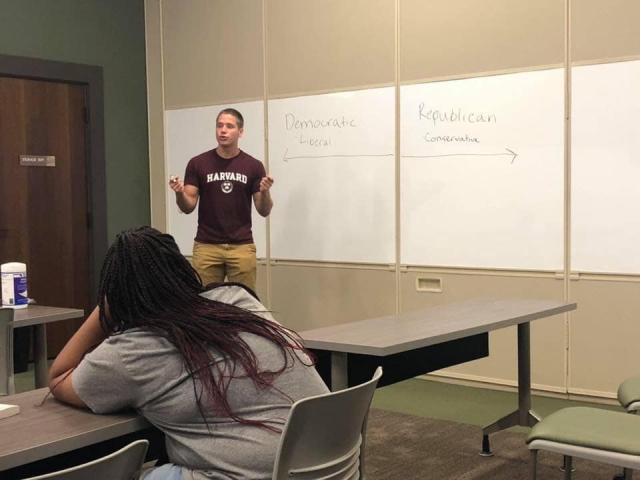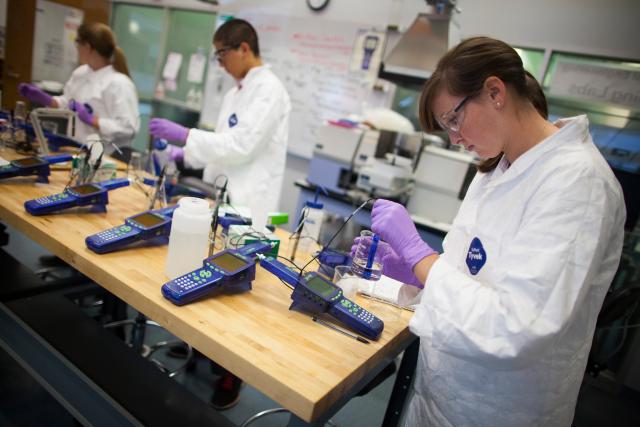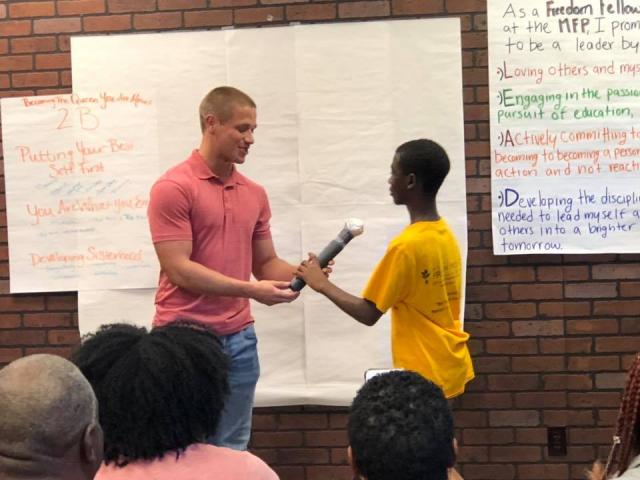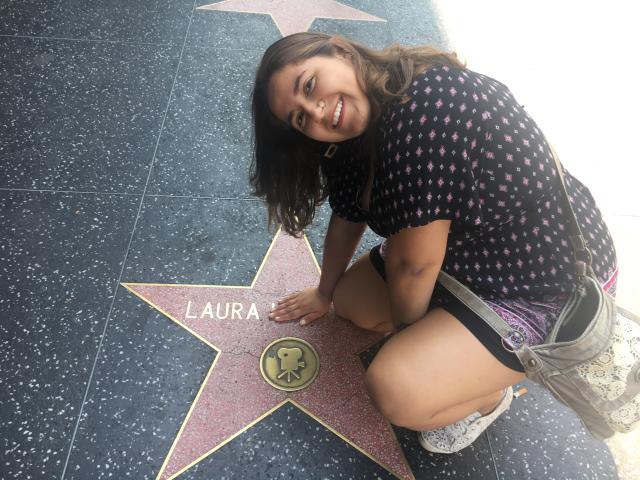Everyone at Harvard, whether you study Applied Math or the History of Art and Architecture, has to take an introductory college writing course called Expos 20 during your first year. Not every student, however, takes the lesser-known Expos 40: Public Speaking Practicum, Harvard’s course dedicated to public speaking.
This has been perhaps my most memorable course at Harvard, the one that helped me to find my voice on campus. To me, public speaking doesn’t necessarily have to mean delivering a formal rehearsed speech on a stage in front of an audience. Participating in class is a form of public speaking. As a first year on campus, I was pretty daunted by the thought of participating in class. My high school classes had a maximum of thirty students in them – all of whom I had known before or seen around. Compare that to an introductory life sciences lecture in Science Center Hall B (the biggest lecture hall on campus) with three hundred other students filling an auditorium to capacity, or an introductory economics lecture in Sanders Theater, where they have to pass around a microphone when you ask a question so that everyone can hear you!
I took Expos 40: Public Speaking Practicum during my junior fall. With only eight other students in the class, this was by far the smallest class I had taken. I can still remember how nervous I was at the beginning, to the point where my hands felt numb before my first speech.
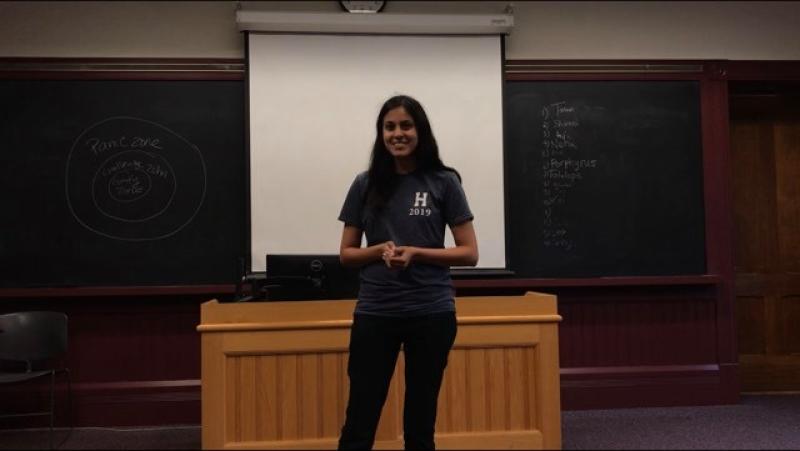
Me in the middle of delivering my first speech for the class. I was still pretty nervous about public speaking!
Over the course of the semester, you give a total of three speeches. If you had five minutes to teach an audience something, what would you teach? I decided to bring in my interest in bioethics by explaining the concept of principlism in my Speech to Teach (STT). What if you had six minutes to convince your audience to take a particular action? My Speech to Initiate an Action (STIA) called on my classmates to visit the Harvard Art Museums as a member of the student board there. For your final speech, the Speech to Change and Attitude (STCA), at least half the class must disagree with your topic before you can do it. Accordingly, I argued passionately for why all states should follow New Jersey’s model and make pumping your own gas illegal.
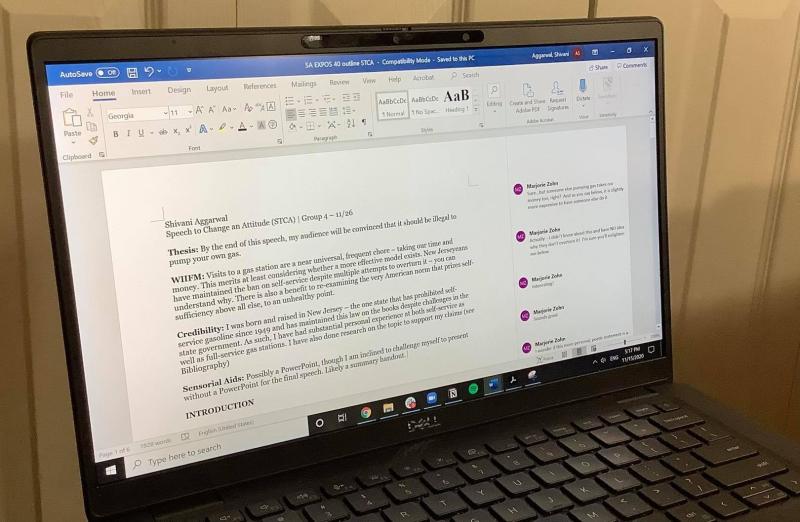
My outline for my final speech, a “Speech to Change an Attitude”, in which I attempted to convince everyone that it should be illegal to pump your own gas. This was an assignment that really invoked my creativity.
Seeing my fellow Expos 40 students take wildly different approaches but still achieve “success” – giving speeches that actually taught me something, persuaded me to do something, and changed my attitude – has led me to internalize the idea that a lot of public speaking involves finding what works for you as an individual speaker, from your presence to your voice.
In the process of learning from each other, it was also rewarding to grow close, forming a kind of community.

It snowed on the last day of class – this is my Expos40 class dramatically posing, ready to take on the world after a semester of growing and learning together as speakers and communicators.
Now a senior, I have stayed on with the course as a peer speaking tutor. This means that I get to meet one-on-one with students to coach them as they work towards their personal public speaking goals. Most are currently taking Expos 40 (I’ve seen speeches on everything from why caffeine should be banned for those under 18 to teaching to how we should prepare for the impending lanternfly invasion!) but a few have just been Harvard students hoping to practice their interviewing skills or brainstorm strategies for overcoming imposter syndrome as an international student in section. This unique campus job has allowed me to continue thinking about what it means to effectively communicate, and best of all, these peer speaking tutor sessions are 100% free for students.
Classes are happening remotely this year, so like all Harvard courses, Expos 40 has had to adapt. Speaking over a screen feels different than standing up in front of a room with a clicker clutched in hand, but it doesn’t seem as though Zoom will be ever fully gone for good in our new reality, and so being conscious and intentional about how to communicate in this new form has been an interesting adjustment.
According to the website, Harvard offers more than 3,700 courses. Before you graduate, you’ll take at least 32 of them. Some advice from me to you: I hope you’ll take Expos 40 as one of those courses, or at least explore the depths of the course catalog. I’ll confess – I’ve forgotten the nuances of Javascript syntax from Introduction to Computer Science and many of the facts my professors taught me in Invertebrate Biology.
What I haven’t forgotten are the breathing exercises from Expos 40 that calmed my nerves before a speech or the difference it made when I varied my tempo and pitch more while speaking.
Taking Expos 40 has allowed me to gain confidence in my voice and has been a unique part of my Harvard experience.

